Thanks to my father, despite being a farmer living in a remote area, he taught me how to read and write long before I was introduced to the school. When I was enrolled as grader one in the last months of 1991, I was already able to read and write in Tigrigna. I knew also A, B, Cs, and 1, 2, 3s in English. The school was then very easy for me. As a result of this, many students and teachers of my elementary school use to consider me as an exceptionally brilliant one. As this year was the first year where schools in Tigrai came into operation due to the long dreadful civil war that ended a few months ago, only grade one was opened. Due to this, I couldn’t be promoted to grade two in the second-half semester.
My hobby of writing my feelings started before school. Then in school, I developed it. We had school clubs of all sorts and I was very active in the language, literature, and related clubs. Many people from Adiabo, especially in the then woreda Adi Hagerai, surely have my image when reading poems for gatherings in public meetings, market places, school ceremonies, etc. I never stopped writing my own feelings until recently when I got stuck into unsorted out routine life cycles. After graduating from university, I was teaching in some universities and private colleges. Then I got some spare time to write. Some of the books I wrote were technical books prepared to fill the resource gap in those universities, colleges, and TVET schools. Many of them, however, didn’t get published and distributed to where they were written for. There were many reasons for this, economic constraint being the most prominent factor.
Here is a short description of my previous works. Whether published, pending, unpublished, or otherwise, you can find a clear description of my books here. There is no limit to the type of literature I use in my books, but so far most of my works have poetic, fictitious, technical, and comic styles. The last on the list is a real historic account of true events. I believe in seeing and as a result of which in most of my works relevant illustrations are included. Ever since my childhood, I was fond of writing any strange things/feelings I encounter or thought of, and yet am the same to this date.
I follow freestyle and freethinking both in my life and writings. I don’t want to see people killing their time worrying about troubles that may or may not arrive in the future. Today is the only day we’ve at hand. Tomorrow may not arrive or we may not lucky enough to see tomorrow. A good day spent today will surely affect tomorrows positively.
- ሕሱም ስደት (Cruel Life of a Tigrian Refugee in Sudan, Tigrigna drama) [1996]
- Once Bitten Twice Shy (Fiction)[Published in 1999]
- ጁባይ እያ ዘመደይ (Poem in Tigrigna) [Unpublished, 2000]
- Modern Industrial Controls (Applicable Methods, 2006) [Pending]
- What Happened to My Dreams? (Poems in English) [Limited compies published in 2011]
- Industrial Motor Rewinding and Maintenance (based on local experiences) [Published 2007]
- Residential and Industrial Wiring (Two Books, Theory and Complete practical guide ) [Unpublished]
- Refrigerator and Air Conditioner Maintenance [Unpublished]
- ወግዒ ጓሳ (Cowboy Tales/Chats in Tigrigna), 2020 [in process]
- The Three Backstabbers, 2021 [Not completed yet]
ሕሱም ስደት
My first book was not really a book; it was a drama play in Tigrigna. It was inspired by true events that happened during the drastic famine of 1984/85 in most parts of Tigrai and Wollo. One of my classmates was a survivor of the famine who returned back from Sudan after staying for 4 years in a refugee camp.
He was the only survivor among his 8 family members who traveled with him to Sudan. He lost his parents, sisters, brothers, and other relatives. He came back home with the help of some neighbors. When he came back home, the local authority couldn’t let him live at his parents’ house. There was no documented file, they say, that indicates it was his family’s property. He suffered a lot for 5 years. He use to sleep on the streets and sometimes with us until finally the local people get united and pushed the authorities to let him live in his parents’ house.
There were many ups and downs in his life. The fiction was played in school and won some years later an award organized by administration of the Western Zone of Tigrai, offices of education and tourism. It was later on developed into an amateur play and that same boy played it well. It was nominated for “ፌስቲቫል ኪነ-ጥበባት ትግራይ” in 1996 at the state level. I don’t remember the rank it stood, but it gained huge appreciation from the audience.
Once Bitten Twice Shy
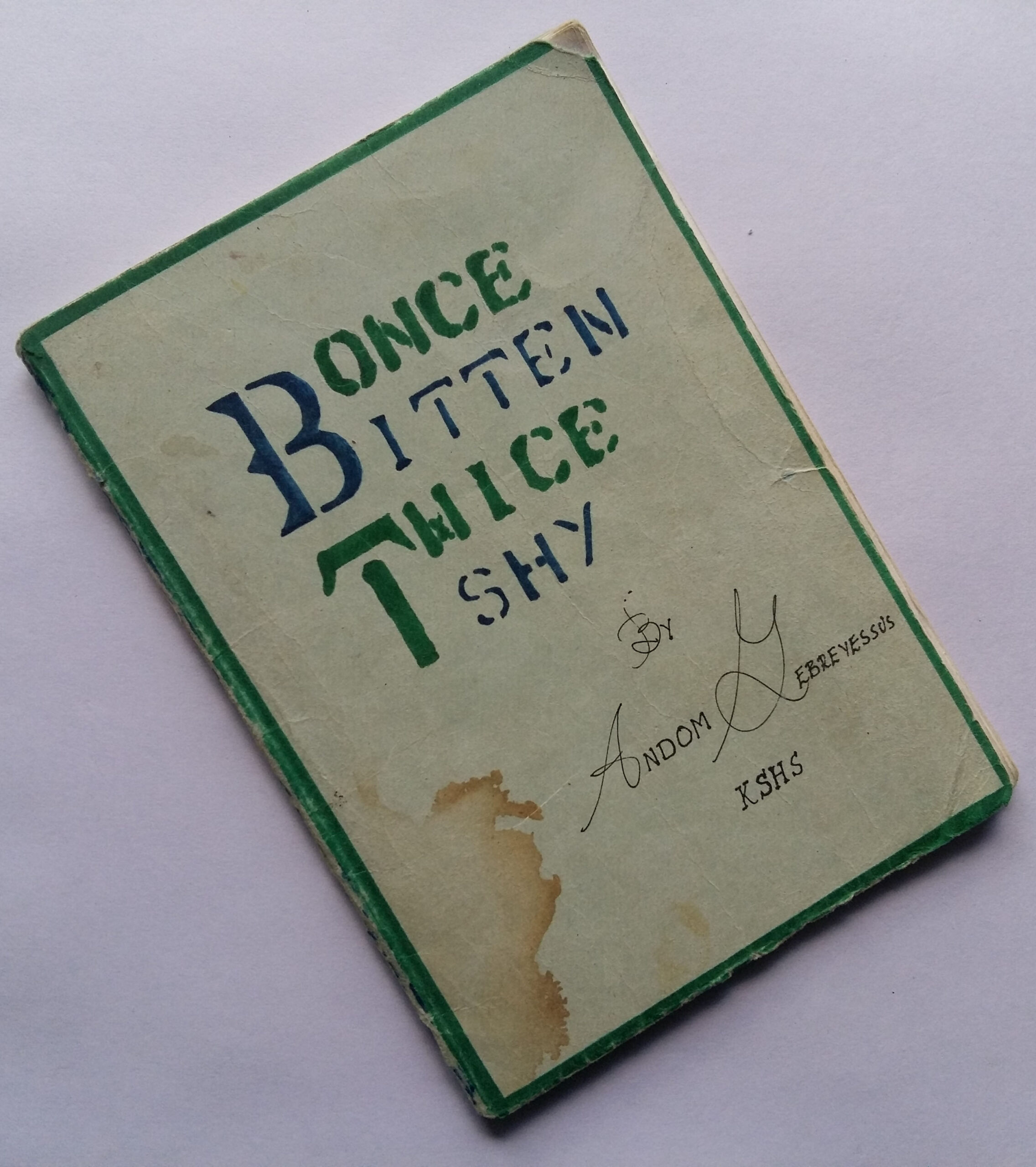
This was a small fiction, written in English. I wrote it in 1999 while I was a 10th-grade student. It is a bombshell about two bombshells, who, as the title indicates, accidentally became penpals. Their relationship led them to an unpleasant experience where after which both were too careful to avoid something similar.
I was in Kellamino Special High School by then. This book was totally handwritten as our school director and TDA (Tigrai Development Association) refuse to help me type and publish it. Our school secretary helped me photocopy the handwritten booklet and put some in the library for students to read it. Many gave me constructive feedbacks. A year later, I showed it to a German Ambassador to Ethiopia, on her visit to our school one day. She promised to help me publish and distribute it to elementary and high schools in Tigrai through their PEAP-Tigrai project. Unfortunately, this was not successful. With the help of some friends, I was able to produce 500 copies which were distributed to some random libraries including my high school, Kellamino.
ጁባይ እያ ዘመደይ
The third one “ጁባይ እያ ዘመደይ” was written a year later. Its theme revolves around the ideology that your hard work is the only guarantee of your life, regardless of how rich or poor your family or relatives are. It is a poetic type, written in Tigrigna, my mother tongue.
Industrial Automation
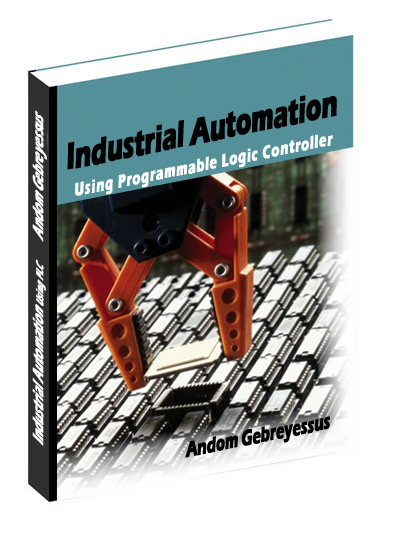
A year later I prepared a concise academic booklet entitled “Industrial Automation: Using A PLC”, it was based on my industrial experience at Wonji Sugar Factory during my Senior project time. The book was entirely based on local experiences and very useful for the industrial workforce both for new industrial installations, expansion, and/or maintenance. I remember to have contacted the factory manager to sponsor me to publish the book, he was interested but couldn’t act. I left Nazareth for Addis Ababa and consequently for Mekelle and couldn’t contact them anymore.
Industrial Motor Maintenance & Rewinding
The next year, I was teaching ‘Industrial Machines and Drives’ in some technical colleges for Level IV and degree students. I outlined the course to be more practical where the students were allowed to spend 3/4th of their time practicing on the workshop. Industrial machines and drive control circuits were intensively practiced both in design and practical implementation aspects.
Finally, as a semester project, all students were put into groups of five individuals and given burned-out motors to rewind. They have to collect nameplate data from the burned outs, carry out necessary calculations, draw the relevant winding diagram and finally rewind the motors.
They have to get checked up on their work at every step to make sure each step is correct and that they can continue. For this purpose, I had prepared a motor rewinding manual from different resources in a way it can fit the current Technical Vocational Training and Education (TVET) standards. Most of the students, especially those in the night session, were from local industries. The manual was so practical that, later on, it was used by Almeda Textile Factory and Mesfin Industrial Engineering maintenance departments, and in Tigrai region Small and Micro Enterprises tenant training workshop serving as a reference on their workbenches. Then I decided to revise the manual and re-write it in the form of a book with more additional features of electrical motor maintenance.
Later on that year, it was developed into a comprehensive maintenance and rewinding guide with the title “Industrial Motor Maintenance and Rewinding” with brief description of all types of electrical motors, the most common faults frequently encountered in the industrial motors, and their relevant remedies. Almost half part of the book covers details about motor rewinding. Right from data collecting, taking necessary calculations, and drawing the wiring diagram to finally rewinding the motor to recover its original operation. The book was clearly stated in a simple plain English.
Electrical Installations
- Electrical Installations: Design, Cost Analysis and Contract Management
- Electrical Installations: Residential and Industrial Wiring
In 2008, while I was teaching courses for “Building Electricians”, I had the chance to work in residential and industrial electrical installations. In that same year, I opened a small company “PCB Electrosystems” focused on the Design, Maintenance, and Installation of electrical and communications systems. In this company, I had some talented and experienced electricians with whom we carried out many residential and industrial electrical installation works. We were also engaged in the installation of electrical and communication systems of low-cost condominium housing.

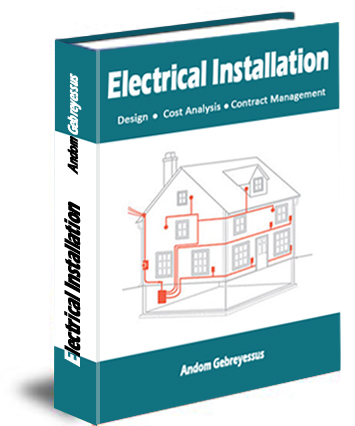

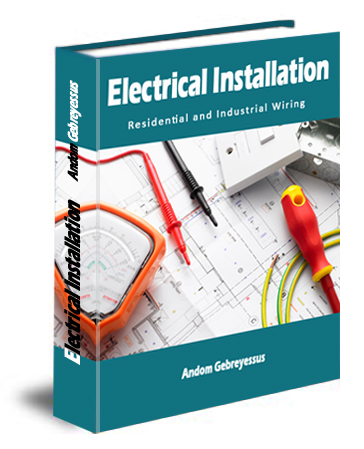
My academic and practical experience in the area helped me to write two practical books related to this field. “Electrical Installations: Design, Cost Analysis, and Contract Management” and “Electrical Installations: Residential and Industrial Wiring”, both of which were entirely based on the local experiences, international guidelines, Ethiopian Building Standards, and EEPCo (Ethiopian Electric and Power Corporation) rules and regulations. The first book covers electrical installation at the design level, the necessary cost analysis to install the planned electrical system, and the most common types of electrical installation contracts, the effective and efficient management of the contract.
The second one is a complete guide for practically implementing the designs into real structures, with a lot of relevant illustrations. In other words, the first one was written for engineers who need a handbook on how to design electrical plans and for electricians who wish to know how to read electrical installation plans. The second one, however, was written for trained and ordinary electricians as a complete guide for all types of residential and industrial wiring principles.
What Happened to My Dreams?
“What Happened To My Dreams?” Ever since our childhood, we all have had dreams. As we grow older and older we find some of them to be silly immature dreams, some of them just impossible, some of them just vanish and yet some of them remain just a dream. When we stop at a certain moment and seriously look back at all the journeys we have been traveling, it’s sometimes a frustrating discovery that we find ourselves traveling totally the opposite to what we dreamed of.
Like everybody elese, I use to dream more than I can tell you here. I don’t know “What Happened to My Dreams?” I have lost lots of them and still hoping for some to come real.

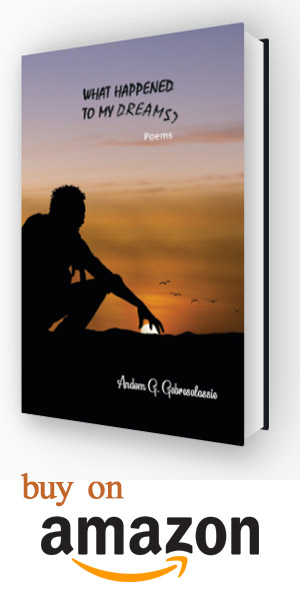
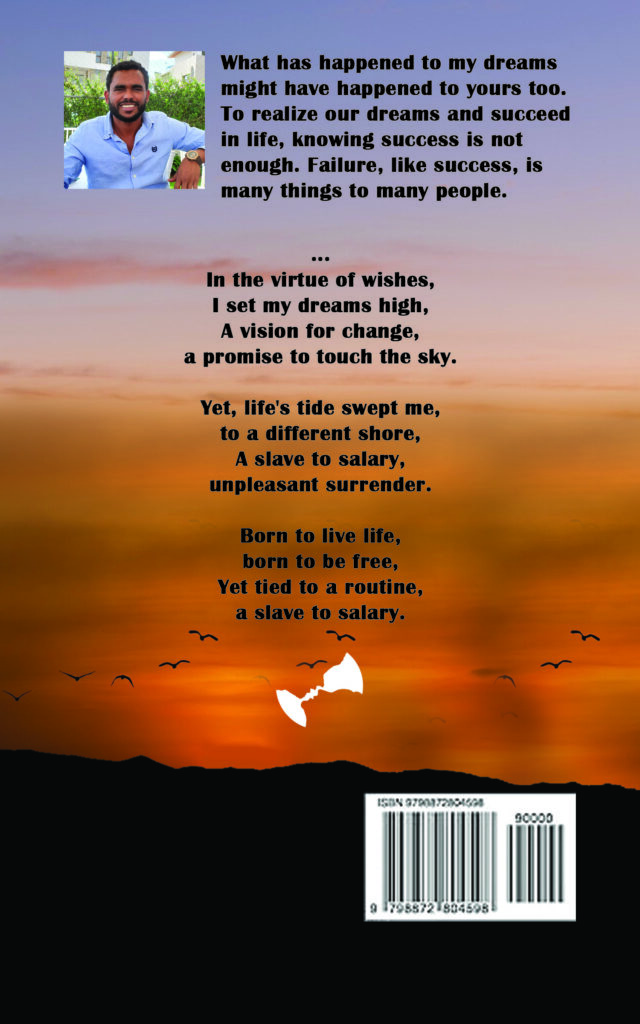
This is a collection of poems written at different times since my high school and first published in 2011 in Addis Ababa. Its also available on Amazon.
Refrigerator and Air Conditioner Maintenance

In early 2006 GC, a friend of mine from college (Samson Bedlu), and I prepared a complete guide in refrigeration and air conditioning. I compiled it in the form of a handout, and laterit was developed into a book format with the title “Refrigerator and Air Conditioner: A Complete Guide”.
Everything about a refrigerator and an air conditioner was stated therein with clear words, illustrations, and pictures. Right from the working principle of both equipment to the advanced maintenance and repair and diagnostic procedures were included.
ወግዒ ጓሳ
Life has many faces. Ever since my childhood, I have seen almost all extremities. The most important part of my life goes to the time when I was a cowboy. Until I was in my teens, I was keeping herds in the countryside traveling around the lowlands of western & north western Tigrai, Eastern Sudan, and Southwestern Eritrea. There I, and of course, many other cowboys used to live merely on milk for several months with the vision of owning a large herd of cattle. I used to travel days & nights just to find comfortable & sustainable grazing land, keeping them from beastly wild animals. Sometimes with friends, sometimes alone. There wasn’t a single jungle left that we never knew from north Gondar to South Eritrea and from Western Tigrai to Eastern Sudan. That was the most golden part of my life I really consider have ever lived.
A cowboy is bold, courageous, friendly, honest, and very kind, at least as far as I know, and as far as I was part of it. Life is always adventurous, always scary, always suspenseful, and always new. You have no place you call home, you have no boundaries, no landlords, and no IDs. Your home is where there is food for your cattle.
Nature is your everything. The sun, the wind, the stars, the moon, the birds, the season, your cattle, etc are your essential timings to count on. No one tells you the weather forecast, the location of water for your cattle, where to find grasses or the best place for your cattle. Nature has ways to tell you. There is no compass, but you will never get lost.
I’m not denying that there are red lines. You come into conflict with many stakeholders of the jungle. The wild beasts, selfish cowboys, etc. But there are certain ways to resolve your conflicts. Everyone knows their limits.
In this book, I’ve stated the life of cowboys, the fun they make, their perception of and their interaction with the modern world. My first day at school as a cowboy was a real comedy. My experience as a cowboy, an outstanding student, my life in the big cities, etc has inspired the comic in the book. Hopefully, one day, I’ll be able to make it into a comic play in the cinemas.
The Three Backstabbers
History. The book will be published soon.
Last Updated on Tuesday, 20 Jan 2024 22:49 EST
